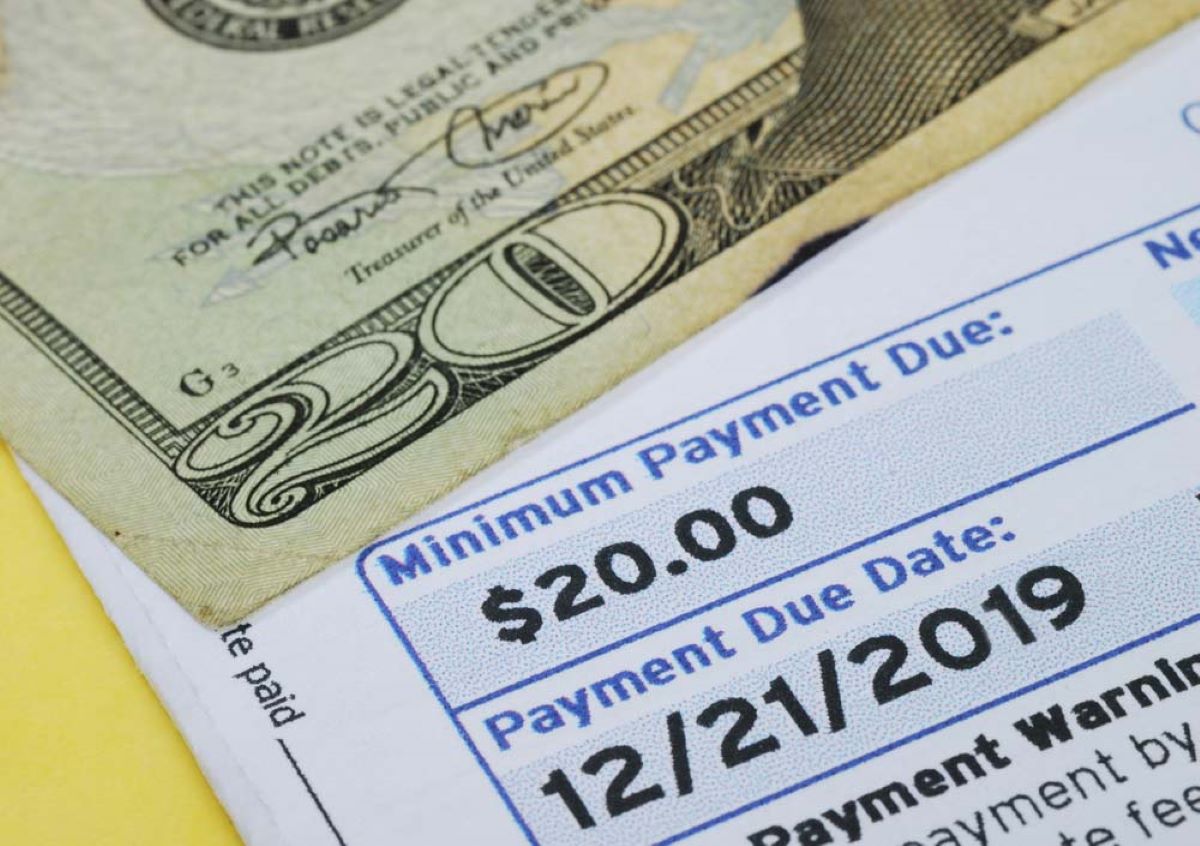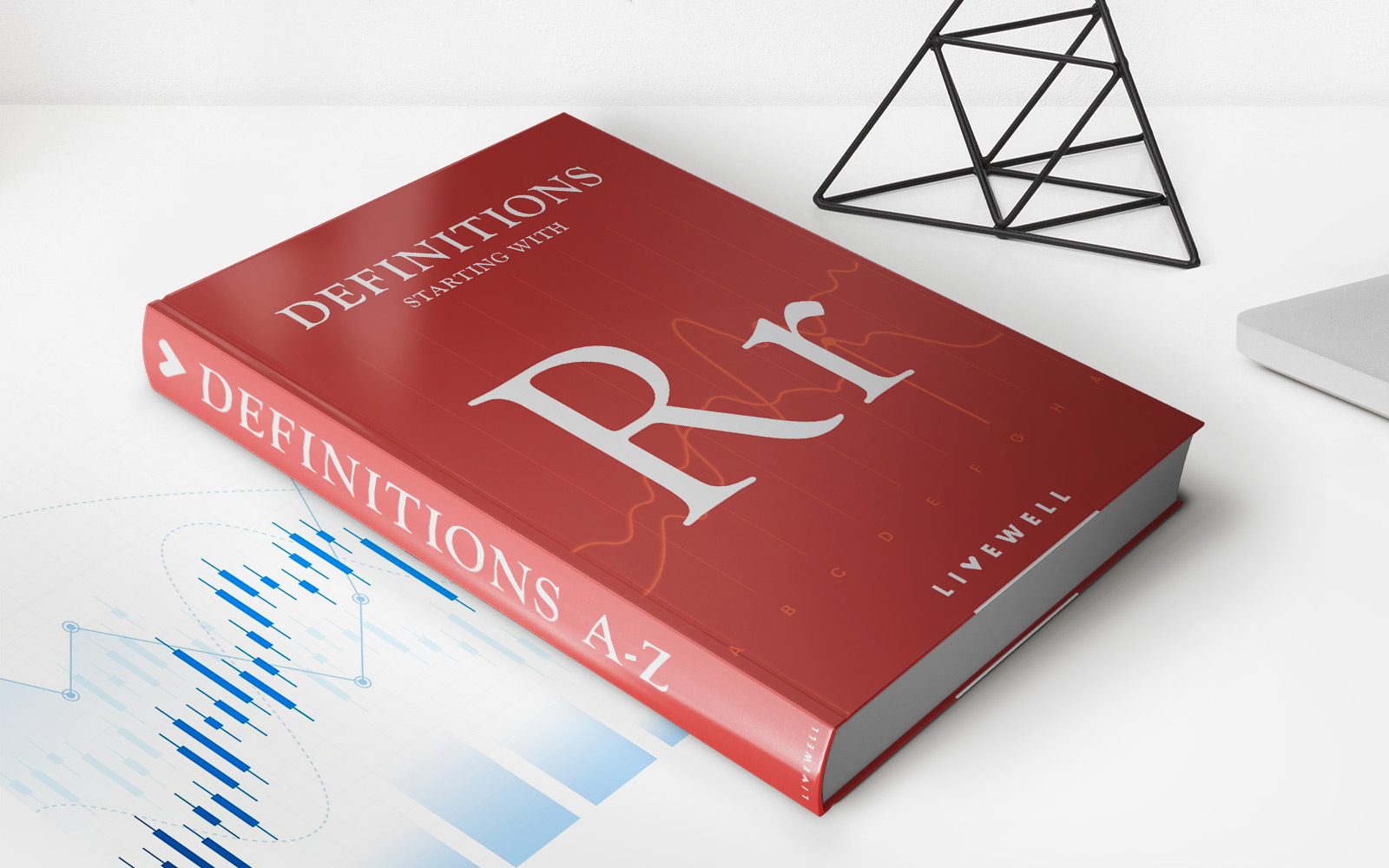Home>Finance>What Happens If You Can’t Make The Minimum Payment On A Credit Card


Finance
What Happens If You Can’t Make The Minimum Payment On A Credit Card
Modified: March 1, 2024
If you're struggling to make the minimum payment on your credit card, learn how it can impact your finances and what options are available to help you manage your debt. Explore strategies to navigate financial challenges and protect your credit score.
(Many of the links in this article redirect to a specific reviewed product. Your purchase of these products through affiliate links helps to generate commission for LiveWell, at no extra cost. Learn more)
Table of Contents
Introduction
When it comes to managing personal finances, credit cards play a significant role in providing financial flexibility and convenience. However, the convenience of using credit cards comes with the responsibility of making timely payments, particularly the minimum payment required each month. Understanding the implications of not being able to meet this minimum payment is crucial for maintaining financial well-being.
Life is unpredictable, and financial challenges can arise unexpectedly, making it difficult to keep up with credit card payments. In such situations, it’s essential to be aware of the potential consequences and available options for addressing missed minimum payments.
In this article, we will delve into the significance of the minimum payment on a credit card, the repercussions of not meeting this obligation, and the various strategies for managing a missed minimum payment. By gaining a comprehensive understanding of these aspects, individuals can navigate financial difficulties with greater confidence and make informed decisions to mitigate the impact of missed payments on their credit card accounts.
Understanding the Minimum Payment
When you receive your credit card statement each month, it includes a minimum payment amount that you are required to pay by a specified due date. This minimum payment is the smallest amount you must pay to keep your account in good standing and avoid late fees or negative marks on your credit report.
The minimum payment is typically calculated as a percentage of your total outstanding balance, often ranging from 1% to 3% of the balance, with a minimum dollar amount. It also includes any interest and fees accrued during the billing cycle. While paying the minimum keeps your account current, it’s important to note that carrying a balance and consistently making only the minimum payment can lead to significant interest charges and prolong the time it takes to pay off the debt.
Understanding the minimum payment is crucial for maintaining a healthy financial standing. It serves as a safety net, ensuring that even if you can’t pay off the full balance, you can still make a minimum payment to avoid immediate negative consequences. However, it’s essential to strive to pay more than the minimum whenever possible to reduce overall interest costs and pay down the balance more quickly.
By comprehending the purpose and calculation of the minimum payment, individuals can make informed decisions about managing their credit card debt and maintaining financial stability.
Consequences of Missing the Minimum Payment
Missing the minimum payment on a credit card can have several detrimental consequences that impact both your immediate financial situation and your long-term credit standing. Understanding these repercussions is essential for anyone facing difficulties in meeting their minimum payment obligations.
1. Late Fees and Increased Interest Rates: When you miss the minimum payment deadline, credit card issuers typically impose late fees, which can add to your financial burden. Additionally, missing payments can lead to an increase in your interest rate, resulting in higher overall costs for carrying a balance on your credit card.
2. Negative Impact on Credit Score: Timely payment history is a significant factor in determining your credit score. Missing the minimum payment can result in negative marks on your credit report, potentially lowering your credit score. A lower credit score can make it more challenging to qualify for favorable loan terms or new lines of credit in the future.
3. Collection Calls and Collection Actions: If you continue to miss payments, your account may be sent to collections, leading to frequent calls from debt collectors and potential legal actions to recover the debt. Dealing with collection agencies can be stressful and may further impact your financial well-being.
4. Long-Term Debt Accumulation: Making only the minimum payment prolongs the time it takes to pay off your credit card balance, resulting in higher overall interest costs and a prolonged debt repayment period. This can hinder your financial progress and limit your ability to achieve other financial goals.
5. Limited Access to Credit: A history of missed payments can make it challenging to obtain new lines of credit or may result in higher interest rates when you do qualify. This can limit your financial flexibility and make it harder to manage unexpected expenses or pursue important investments.
By understanding the potential consequences of missing the minimum payment, individuals can take proactive steps to address financial challenges and minimize the impact on their credit card accounts and overall financial well-being.
Options for Dealing with a Missed Minimum Payment
When faced with the inability to make the minimum payment on a credit card, it’s important to explore available options to address the situation and mitigate its impact on your financial health. Understanding these options can empower individuals to make informed decisions and take proactive steps to manage their credit card obligations.
1. Contact the Credit Card Issuer: If you foresee difficulty in making the minimum payment by the due date, reaching out to your credit card issuer can be beneficial. Some issuers may offer hardship programs or temporary payment arrangements to help you manage your payments during challenging times. Communicating your situation and exploring potential solutions can help avoid some of the immediate consequences of missing a payment.
2. Prioritize the Payment: If you have multiple financial obligations, consider prioritizing the minimum payment on your credit card to avoid the negative repercussions of a missed payment. Assess your budget and allocate available funds to cover the minimum payment, even if it means adjusting other expenses temporarily. This can help prevent late fees, increased interest rates, and credit score damage.
3. Explore Balance Transfer Options: If high-interest charges are contributing to your inability to make the minimum payment, consider exploring balance transfer offers from other credit card issuers. Transferring your balance to a card with a lower interest rate or a promotional 0% APR period can provide temporary relief and make it easier to manage your payments.
4. Seek Credit Counseling or Financial Assistance: Credit counseling agencies can provide guidance and support for managing credit card debt. They may offer debt management plans or financial education to help you regain control of your finances. Additionally, seeking financial assistance from reputable sources, such as nonprofit organizations or government programs, can provide relief and valuable resources for addressing financial challenges.
5. Consider Loan Options: Depending on your overall financial situation, exploring loan options, such as personal loans or consolidation loans, may provide a means to pay off high-interest credit card debt and simplify your repayment process. However, it’s essential to carefully assess the terms and impact of taking on additional debt before pursuing this option.
By considering these options and taking proactive steps to address a missed minimum payment, individuals can navigate financial challenges with greater resilience and work towards regaining financial stability.
Conclusion
Managing credit card payments, including the minimum payment, is a fundamental aspect of maintaining financial well-being. Understanding the implications of missing the minimum payment and being aware of available options for addressing this situation is crucial for individuals facing financial challenges.
By comprehending the significance of the minimum payment and the potential consequences of missing it, individuals can make informed decisions and take proactive steps to mitigate the impact on their credit card accounts and overall financial health. Prioritizing timely payments, exploring communication with credit card issuers, and seeking alternative financial solutions are essential strategies for managing missed minimum payments effectively.
It’s important to remember that financial difficulties can arise unexpectedly, and facing challenges in meeting credit card obligations is not uncommon. Seeking support from credit counseling agencies, exploring loan options, and maintaining open communication with creditors can provide valuable pathways to address missed payments and regain control of one’s financial situation.
Ultimately, by staying informed, proactive, and resourceful, individuals can navigate the complexities of credit card payments and work towards achieving financial stability. While missed minimum payments can present challenges, they also offer opportunities for learning, growth, and the development of resilient financial management skills.
By embracing a proactive and informed approach to managing credit card payments, individuals can navigate financial challenges with greater confidence and work towards building a solid foundation for long-term financial well-being.














